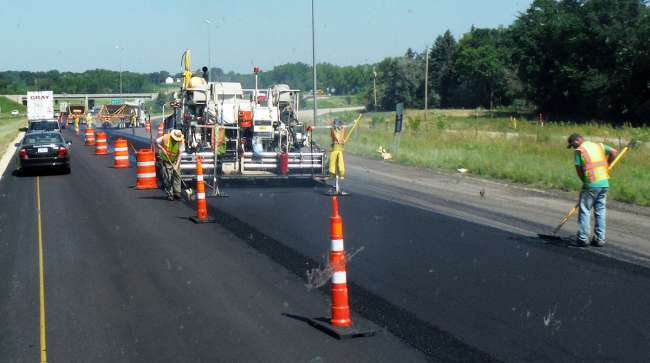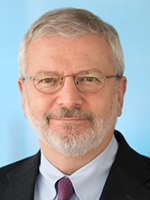Senior Reporter
Industry Leaders Lament Infrastructure Delays at Roundtable

WASHINGTON — If the prevailing wisdom seems to be in favor of getting on with repairing old and building new U.S. infrastructure, why does the nation seem to be in a state of inertia in getting the job done?
That was the first question posed on May 17 to a panel of business, labor and congressional leaders at a Business Roundtable event for Infrastructure Week, which is marked nationally by education and advocacy events that highlight the state of roads, bridges, rails, ports, airports and more.
The answers ranged from the usual complaints that bureaucratic red tape is stalling construction projects to Congress’ reluctance to raise the gas tax to fund road and bridge projects.

Bolten
Business Roundtable CEO Joshua Bolten said that in the realm of U.S. economic policy three areas stand out: taxation, regulation and infrastructure.
The recent tax reform legislation is fixing the tax problem, and the Trump administration has made strides in alleviating the burden of over-regulation, Bolten said.
“But progress on the third leg of the competitive stool, infrastructure, is hard to find,” Bolten said. “Today, America’s infrastructure ranks well behind our biggest developed country competitors. Businesses, workers and family lose billions of hours and dollars every year as they deal with the burdens of our antiquated infrastructure. And the problem is compounding every year.”
Democratic Sen. Tom Carper of Delaware, who said he has proposed bills to increase the gas tax on three occasions, blamed the stall on a “reluctance on the other side to raise taxes or either user fees.”
It was great to join @BizRoundtable for #infrastructureweek. Even on our diverse panel, there was one thing we can all agree on – our economy relies on real, smart investments in our infrastructure pic.twitter.com/yxoDLc55ei — Senator Tom Carper (@SenatorCarper) May 17, 2018
But Rep. Rodney Davis, Republican of Illinois, called the infrastructure problem a bipartisan one.
“This is an issue that I came to Washington five years ago campaigning as a Republican on investing more in infrastructure,” Davis said. “What I found out when I got here (even the folks on my side) it doesn’t matter what plan we put in place, if we charge one federal dollar it’s too much.”
Brendan Bechtel, CEO of Bechtel, a global engineering, construction and project management company, said the core question surrounding infrastructure comes down to this: “Do we want to invest in ourselves as a nation and get more competitive, or do we want to continue to muddle along and fall further behind?”
Larry Willis, president of AFL-CIO’s Transportation Trades Department, said that despite low unemployment numbers, the nation is not taking advantage of creating additional jobs for infrastructure.
“You have too many people in this country that face killer commutes,” Willis said. “We have jobs that are being created, but too often, especially in city centers, that they don’t have access to. We need to fix that if we’re going to grow our economy.”
.@jpmorgan's Jamie Dimon: "Our ability isn't that we don't have innovation ... We cripple ourselves with red tape" when it comes to #infrastructure. #TimetoBuild pic.twitter.com/aBSlnCkijQ — Business Roundtable (@BizRoundtable) May 17, 2018
“When President Kennedy said we would put a man on the moon, eight years later a man was walking on the moon,” JPMorgan Chase & Co. CEO Jamie Dimon. “Now when someone says we’re going to build a bridge, eight years later we’re still trying to get permits to build it. It’s a disgrace.”
Dimon added, “Bad infrastructure is bad for everybody. It’s hurting more and more over the years and it’s getting worse.”

